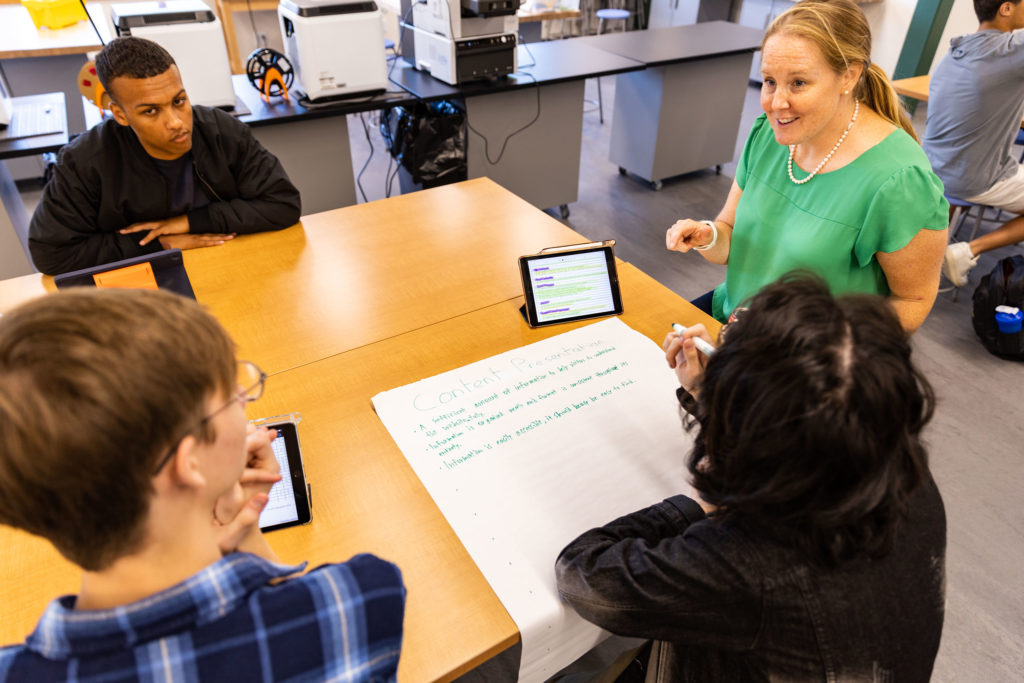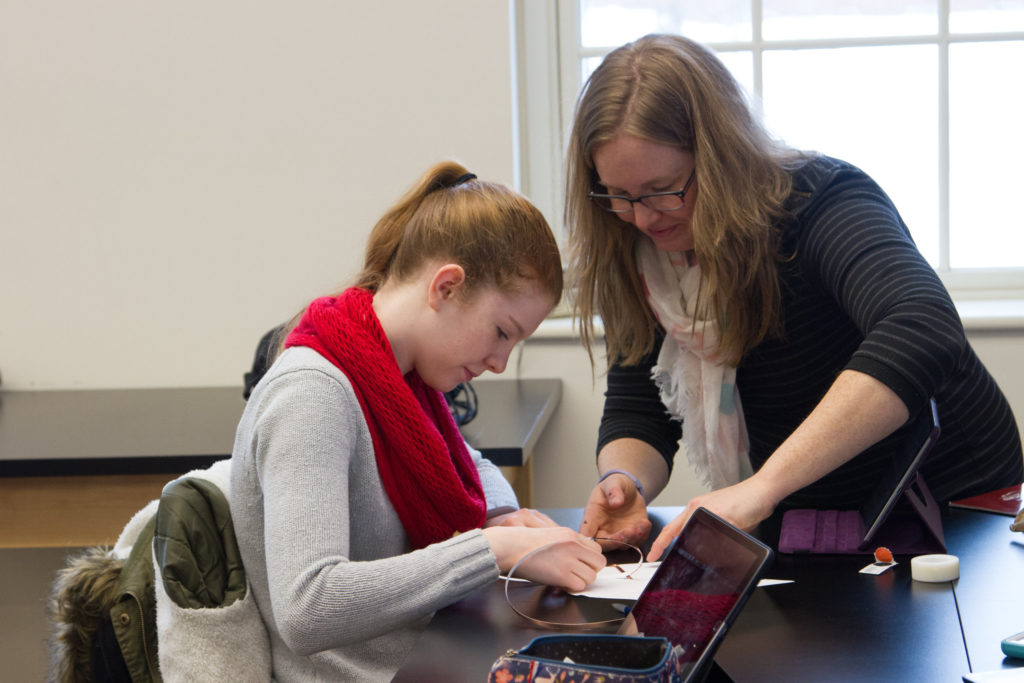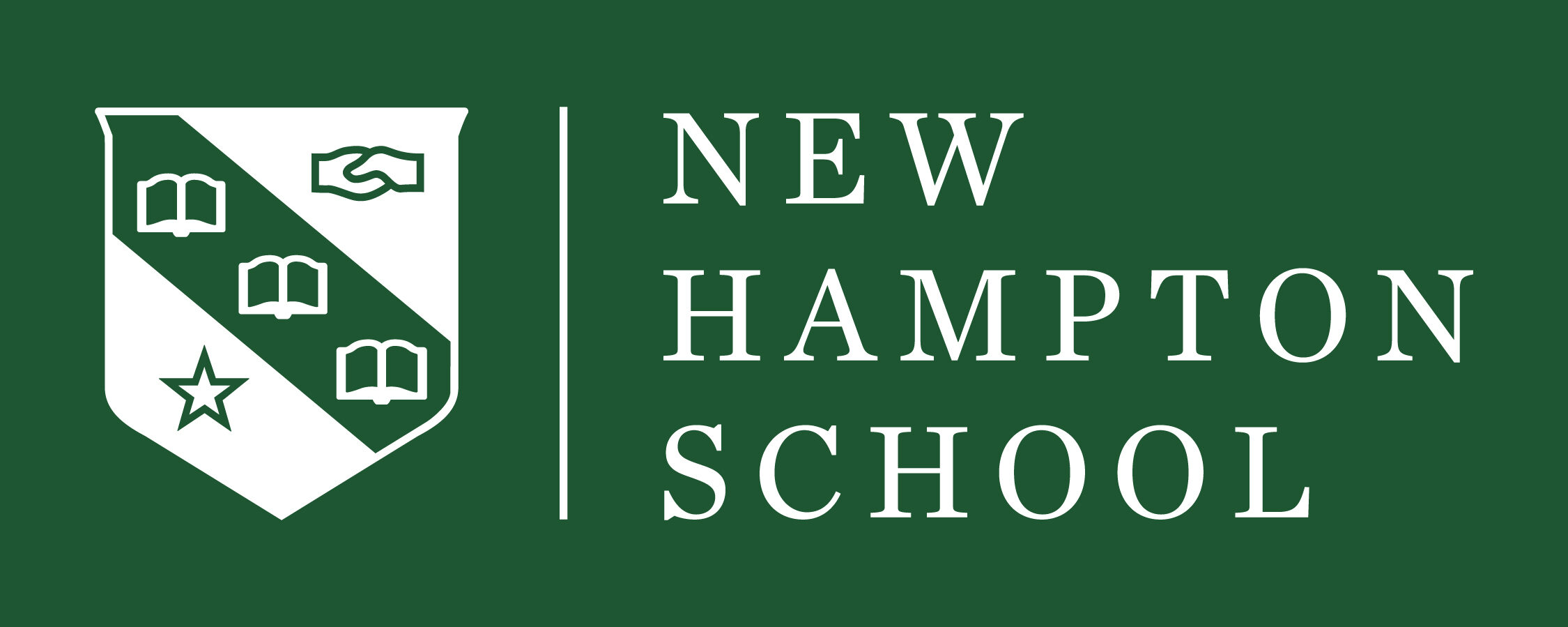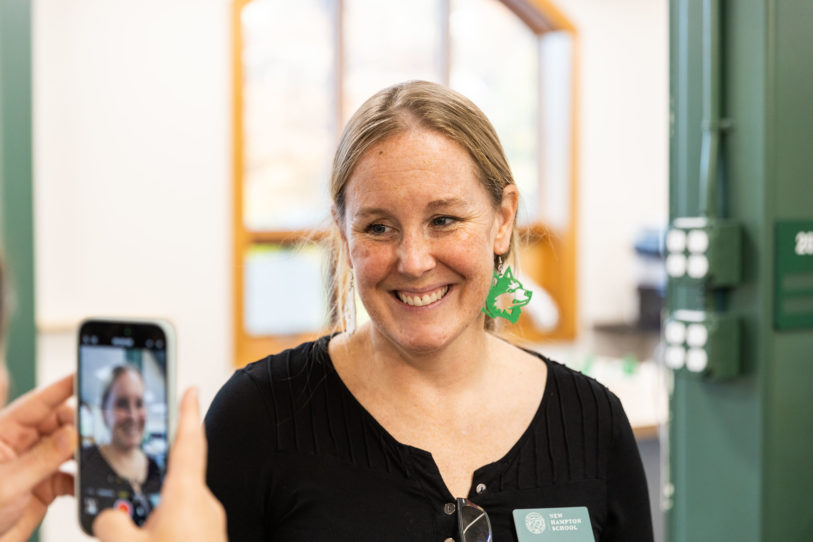We talk a lot about what our teachers do on campus—especially as they contribute in areas of school life, including academics, residential life, and co-curriculars. The person behind these roles is something mostly their students know best. This month, we share with you Kim Duncan, Ph.D., Interim Program Coordinator of the Entrepreneurial Studies Program and a member of the Science faculty. While already of some fame to our students and young alumni, Dr. Duncan first stepped into New Hampton School’s classrooms in the fall of 2017. If you’re an alum, parent, prospective student, or a current Husky looking to learn more about your teacher—read on, because this spotlight is for you!
First, a little bit of background. Dr. D, as students know her, received a B.A. in Chemistry from Cornell, where she also played lacrosse. She continued her studies at Princeton, earning a Ph.D. in Chemistry and serving as a volunteer graduate assistant for the women’s lacrosse team. Prior to coming to New Hampton, she worked in science policy and taught chemistry at the university level. When she isn’t in the classroom teaching Higher Level IB Chemistry, Dr. D can be found most days (and many evenings) in the Robert D. Kennedy ’50 Creativity Lab in the ARC. She leads the robotics and eSports teams, the coding classroom, and also coaches. Now let’s get into the Q&A with Dr. D!

What was your first-ever job?
Apart from babysitting (which I started doing when I was 13), I worked at a veterinarian clinic when I was 16. As a kid, I wanted to be a veterinarian, so it was a way for me to explore that as a career option. I sometimes helped with holding animals during exams and surgeries, but mostly I worked in the area where the animals boarded—feeding, cleaning, and walking the dogs and cats who stayed there.
You’re not just teaching: you’re also advising and leading a co-curricular activity. How do you balance all that with your time in the Creativity Lab?
I’m not going to lie. Some days it is hard to slow down enough to find the time to sit and tinker with the equipment we have in the Creativity Lab. I have a long list of projects that I want to try out and skills that I want to work on personally so I can better support our students. I remind myself that freeing up mental space to be creative in some way often reenergizes me—so then I am ready to meet the demands of the rest of my day. I also drink a lot of iced coffee.
How do you incorporate your hard-science background into your work in the Entrepreneurial Studies Program?
Although I don’t get to talk about the relationship between a material’s structure and its properties very often, there are attributes that I developed throughout my science career that have been invaluable in this work. In our program, we emphasize that students are developing an entrepreneurial mindset. They are becoming more comfortable with risk and failure, cultivating critical thinking and problem-solving skills, and learning how to be flexible and adaptable. These are the same attributes that I needed to master early on in my graduate work. Many (most?) of my experiments failed. But, just as in entrepreneurship, I only needed one or two experimental systems to really take off. So, each day I returned to the lab, puzzled over what hadn’t yielded good results, and set up the next series of syntheses to start the process all over again. Each day, I try to model these behaviors for students and craft experiences where they can take risks and push themselves outside their comfort zone in a structured and supported way.
What technology could you never part with?
My calendar app. Our family of four is busy, and it’s the only way I can keep track of what we all have going on!

What are three items you always have on your desk?
Post-it notes, Precise V5 pens (preferably green), and an array of coffee mugs.
What are the big questions you’d like your students to be thinking about when they are in the Creativity Lab?
I think the biggest one I want them to be thinking about is, “Why am I doing what I am doing?” Helping students find their “why” is an important step in the process that often we charge past in the interest of getting to “what” and “how.” Throughout my career, I’ve learned that having a really solid understanding of the “why” helps guide the decisions I am making in a project. Then, I can start asking them other important questions like “Who’s the audience?,” “What’s the first step?,” “What’s the next step?,” or “How can you use what we have here to push your idea in a new direction?”
If you weren’t a scientist and teacher, what would you be doing?
I’d be working in a science museum, doing messy science demos, and blowing up balloons full of hydrogen.
What’s the best piece of advice you have ever been given?
My dad was always the person I turned to when I needed to work out the details of my next big step—to figure out if it was the “right thing” or the “right time” or to talk through the million “what ifs” that flooded my mind about an opportunity. At some point during those phone calls, he would say to me “Bink, they can’t take away your birthday, and Christmas is always on the 25th.” It was his way of saying, “Just take the risk. What do you really have to lose?” while also reassuring me that things will change, but I’d stay grounded in some way.




